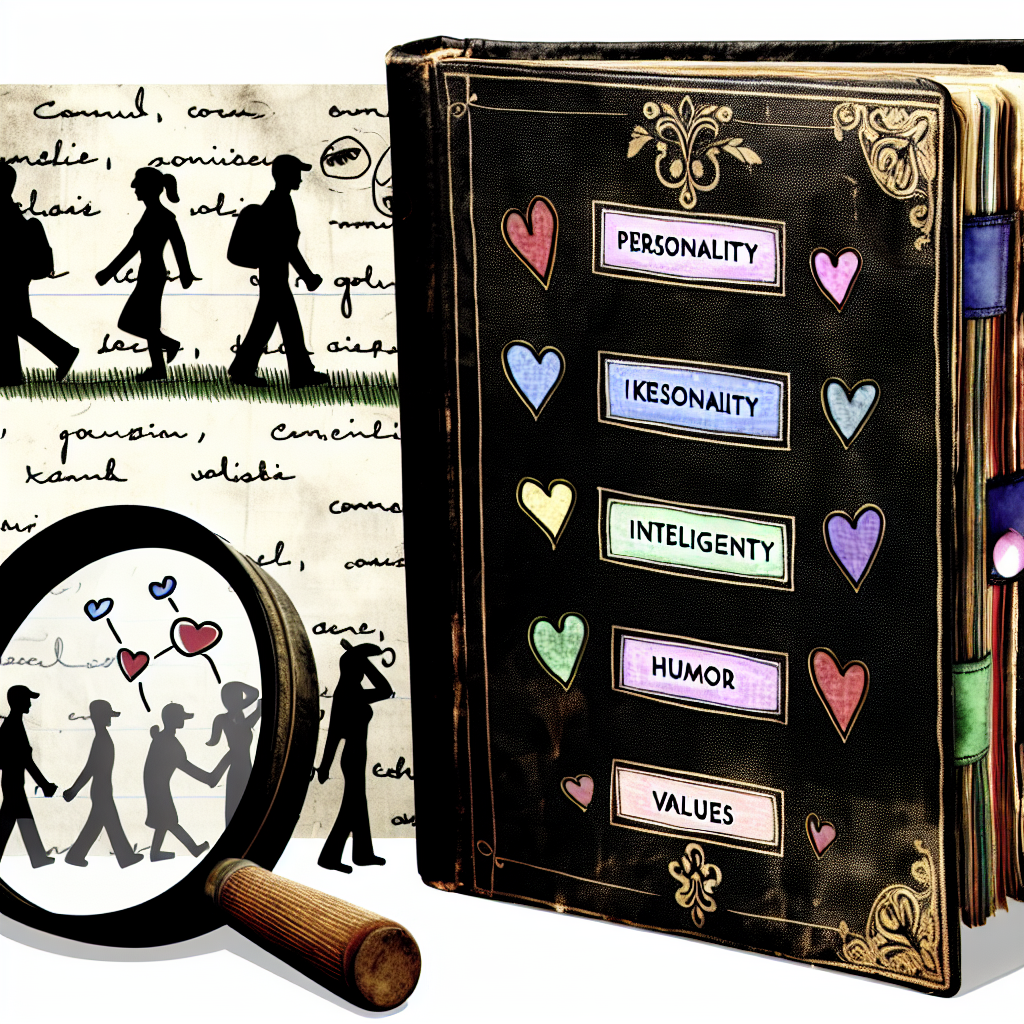Should You Use Your Last Name on a Dating Profile?
Introduction
In the age of digital dating, where over 300 million users worldwide engage with dating apps and services, personal information management becomes a crucial consideration. One frequent question among singles, from ages 18 to 80 and beyond, is whether or not to include their last name on a dating profile.
At first glance, including your last name may seem like a practical and harmless gesture—especially for individuals seeking serious, long-term relationships where honesty and transparency are often emphasized. Some individuals believe sharing their full name builds trust, establishing credibility and intentions early in virtual conversations. Others argue that such openness can lead to privacy infringements, identity theft, or unintended online and offline consequences.
What Experts Say: Balancing Privacy and Trust Online
Studies in psychology and digital behavior provide useful perspectives on whether revealing your last name on a dating profile is advisable.
Dr. Helen Fisher, a biological anthropologist and Chief Scientific Advisor for Match.com, says that humans are constantly seeking ways to verify trust in potential partners—even subconsciously. Her research suggests that users are more inclined to interact with someone who appears genuine and consistent in their profile, which may include real occupation, interests, and mutual identity markers. However, Fisher does not recommend full-name disclosures at the onset of online interactions, particularly with strangers.
Privacy experts from organizations like the Electronic Frontier Foundation (EFF) and Norton LifeLock emphasize that online dating is one of the top channels targeted for identity theft and romance scams. They strongly advise against posting information that can be easily tied to physical addresses or sensitive personal records, including your last name.
The Risks of Oversharing: Lessons from Real User Behavior
A 2019 study published in the journal *Cyberpsychology, Behavior, and Social Networking* explored user behavior concerning oversharing on dating apps. It found that 47% of users surveyed had experienced uncomfortable situations as a result of sharing personal details too soon—such as sending images or revealing full names.
Interestingly, the study showed that older users (ages 50 and up) tend to be more trusting online but also more likely to fall victim to scams or privacy breaches. This underscores the importance of educating users about cautious sharing practices—regardless of their age or dating intentions.
Authenticity Doesn’t Require Full Disclosure
A Stanford University study supports the idea that digital authenticity doesn’t necessarily require revealing every personal detail upfront. True online authenticity comes from consistency—across photos, tone, storytelling, and gradual self-disclosure.
On platforms like eHarmony and OkCupid, shared values and mutual interests usually build the foundation for connection well before any personal identifiers like a last name are revealed. These platforms use secure messaging systems designed to protect user anonymity until both individuals decide to move the conversation off the app.
Psychological Boundaries Keep You Safe (and Sane)
According to the American Psychological Association, managing emotional exposure is crucial in online dating. Their research highlights that users should set clear boundaries and avoid sharing details that can be used to track them down—especially during the initial stages of interaction.
Experts consistently recommend delaying full-name disclosure until there’s mutual trust, which often comes with deeper conversations, multiple video or phone calls, or an in-person meetup in a safe environment. At that point, sharing more personal information—including your last name—can feel organic and be part of progressing your connection.
Smart Disclosure: When and How to Reveal Your Full Name
So, when is it appropriate to share your last name?
– When moving from chat to video calls or planning real-life meetings—assuming mutual interest and comfort are established.
– When both parties have exchanged social media or LinkedIn profiles for additional transparency.
– When there’s evidence that the other person has been equally open and respectful.
– When your intuition and logic align to say: “This feels like a good next step.”
Disclosing your last name is less about being deceptive and more about being smart. It’s about managing risk while allowing space for real connection.
Conclusion: Privacy is Power in the Dating Game
Deciding whether to add your last name to a dating profile isn’t about following a one-size-fits-all rule. It’s about evaluating your personal comfort level, safety priorities, and relationship intentions. Whether you’re 20 or 70, it’s important to balance honesty with protection, and vulnerability with caution.
Let your deeper connections develop naturally, and remember: keeping things private in the early stages isn’t dishonest—it’s wise. By honoring your boundaries and trusting the process, you set the stage for a healthier dating experience.
Summary:
Whether to include your last name on a dating profile is a personal decision that requires evaluating your comfort level, safety priorities, and relationship intentions. Experts recommend delaying full-name disclosure until there is mutual trust, often after deeper conversations and an in-person meeting. Balancing honesty and vulnerability with protection and caution is key to a healthy dating experience.
References:
– [Federal Trade Commission – Romance Scams](https://www.ftc.gov/news-events/data-visualizations/data-spotlight/2022/02/reports-romance-scams-hit-record-high-2021)
– [Helen Fisher – Match.com Research](https://www.verywellmind.com/helen-fisher-biography-4172954)
– [Cyberpsychology Journal Study](https://www.liebertpub.com/doi/10.1089/cyber.2018.0595)
– [American Psychological Association – Online Dating Research](https://www.apa.org/news/press/releases/stress/2017/technology-social-media)
– [Norton LifeLock – Dating & Identity Theft](https://us.norton.com/blog/privacy/online-dating-privacy)
– [Stanford University Study – Online Dating](https://news.stanford.edu/2020/02/10/online-dating-changing-society)
– [Electronic Frontier Foundation – Online Privacy Tips](https://www.eff.org/issues/online-privacy)

Dominic E. is a passionate filmmaker navigating the exciting intersection of art and science. By day, he delves into the complexities of the human body as a full-time medical writer, meticulously translating intricate medical concepts into accessible and engaging narratives. By night, he explores the boundless realm of cinematic storytelling, crafting narratives that evoke emotion and challenge perspectives. Film Student and Full-time Medical Writer for ContentVendor.com



